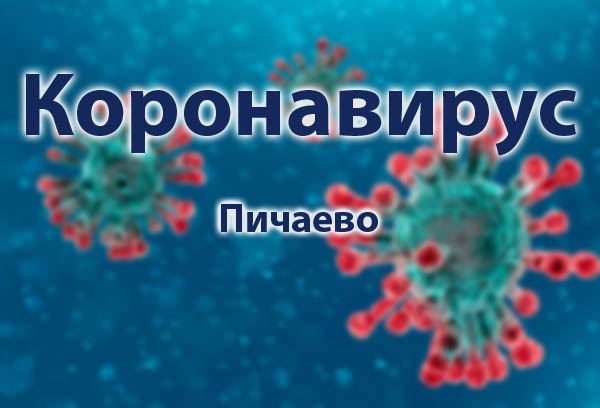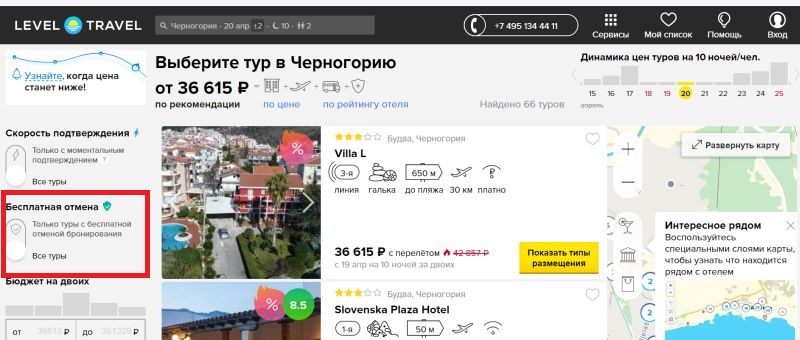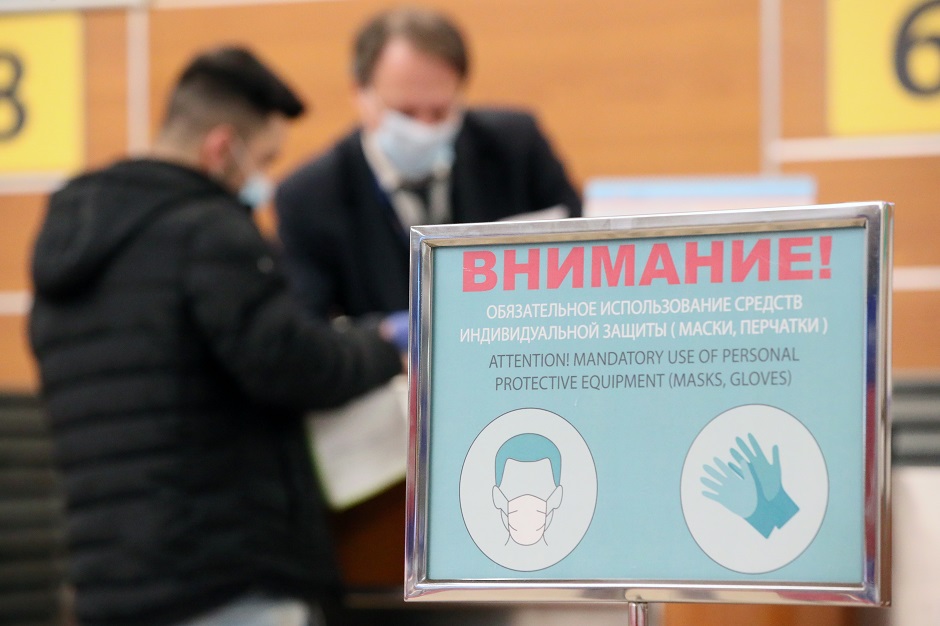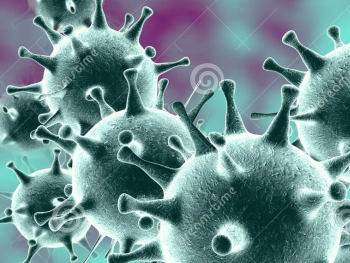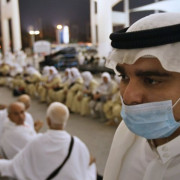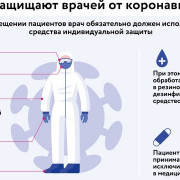Коронавирус в швейцарии (последние новости)
Содержание:
- Где больше всего заболевших коронавирусом в Швейцарии
- Section 2 Restrictions on Border Crossings and the Admission of Foreign Nationals
- 1 Molecular-biological analyses for Sars-CoV-2
- News: UK and South Africa
- Austria and Rome
- Travel in Switzerland
- 1. Active substances or medicinal products with the listed active substances
- The latest stories
- Stranded Brits and South Africans to return home for Christmas
- First Covid-19 vaccinations take place in Switzerland
- Coronavirus: the situation in Switzerland
- ‘Highly likely’ that variant Covid virus has reached Switzerland, say officials
- Swiss impose entry ban for travellers from UK and South Africa
- Cantons speed up Covid vaccination preparations
- Switzerland bans flights from UK over new coronavirus
- The importance of ‘white gold’ to the Alpine economy
- Lockdown results in record number of inventions
- Swiss tourism urged to become ‘more local and more digital’ in 2021
- Still «normal situation»
- Section 1 Principle
- Количество заболевших и умерших на сегодня
- 4 Costs paid in the case of several analyses involving one person on the same day
- Entering and returning to Switzerland
- Information for incoming tourists
- Skiplink navigation
- Stranded Brits and South Africans to return home for Christmas
- First Covid-19 vaccinations take place in Switzerland
- Coronavirus: the situation in Switzerland
- ‘Highly likely’ that variant Covid virus has reached Switzerland, say officials
- Swiss impose entry ban for travellers from UK and South Africa
- Cantons speed up Covid vaccination preparations
- Switzerland bans flights from UK over new coronavirus
- The importance of ‘white gold’ to the Alpine economy
- Lockdown results in record number of inventions
- Swiss tourism urged to become ‘more local and more digital’ in 2021
- 3 Immunological analyses for Sars-CoV-2 antigens and and Sars- CoV-2 rapid tests
- Public spaces and services
- 2 Analyses for Sars-CoV-2 antibodies
Где больше всего заболевших коронавирусом в Швейцарии
Как показывает карта Федерального управления общественного здравоохранения страны, которую мы разместили выше, больше всего заболевших в кантонах Тычино ( столица Лугано) — 638,5/ 100 тыс. населения, Женева ( столица Женева) — 491,3/ 100 тыс. населения и Во ( столица Лозанна) — 478,8/ 100 тыс. населения.
26-03-2010
На сегодня зарегистрировано более 10897 человек, инфицированных коронавирусом, 153 из них умерли. Выздоровели 131 человек.
15-03-2010
Заболело более 2200 человек, инфицированных коронавирусом, 13 из них умерли.
14-03-2010
Зарегистрировано 1389 человек, инфицированных коронавирусом, 13 из них умерли. По состоянию на 14 марта самое большое количество инфицированных в кантоне Во (272) и Тычино ( 262). За ними следуют Цюрих ( 148), Базель ( 119) и Женева (107). Вирус есть уже во всех кантонах Швейцарии.
Органы здравоохранения обращаются к гражданам: следуйте рекомендациям, держите дистанцию при контакте с людьми, защищайте пожилых людей от заражения, тщательно мойте руки, избегайте рукопожатия, кашлять и чихать надо или в тканевые салфетки, или в изгиб руки. C лихорадкой и кашлем следует оставаться дома. Обратиться за медицинской помощью ввиду особой заразности болезни можно только после регистрации по телефону в кабинете врача или скорой помощи.
13-03-2010
По состоянию на 13 марта Швейцария имеет 1125 положительных случаев инфицирования коронавирусом, в том числе подтверждено 1125 случаев. За последние сутки количество заболевших увеличилось. Есть два новых смертельных случая, это пожилые люди в возрасте 80 лет из кантона Базель. . Всего в Швейцарии зарегистрировано 6 смертельных исходов из-за коронавируса.
11-03-2010
По состоянию на 11 марта на территории Швейцарии подтверждено 645 случаев инфицирования коронавирусом. За последние сутки количество заболевших увеличилось более чем на треть — на 169 человек. Есть четвертый смертельный случай: скончавшийся от коронавируса — 54 летний мужчина из кантона Базель.
10-03-2010
По состоянию на 10 марта 2020 года, всего за сутки Швейцария подтвердила еще 195 новых случаев инфицирования, нарастающим итогом в стране уже насчитывается 476 человек, больных коронавирусом. Также 10 марта сообщили о третьей смерти в Швейцарии от коронавирусной инфекции. Скончавшаяся — женщина из кантона Тичино, которой было более 80 лет.
09-03-2010
По состоянию на 9 марта в Швейцарии зарегистрировано 281 подтвержденных случаев заражения коронавирусом, 2 человека умерли.
В связи с распространением коронавируса Федеральный совет Швейцарии классифицировал ситуацию в стране как особую, в соответствии с Законом об эпидемиях.
08-03-2010
Section 2 Restrictions on Border Crossings and the Admission of Foreign Nationals
Foreign nationals who wish to enter Switzerland from a high-risk country or from a high-risk region and who do not fall within the scope of the Agreement of 21 June 1999 between the European Community and its Member States, of the one part, and the Swiss Confederation, of the other part, on the Free Movement of Persons (AFMP) or the Convention of 4 January 1960 establishing the European Free Trade Association (EFTA Convention) shall be refused entry for a period of stay of up to three months that does not require a permit and does not involve gainful employment (Art. 10 of the Foreign Nationals and Integration Act of 16 December 2005 (FNIA)).
Persons who provide credible evidence that they are in a situation of special necessity are exempted from this ban on entry. The State Secretariat for Migration (SEM) shall issue the required directives.
Decisions taken by the competent authorities may be enforced immediately. Article 65 of the FNIA applies mutatis mutandis. An appeal may be filed against the SEM decision within 30 days of notification. The appeal does not have suspensive effect.
The criminal provisions of Article 115 FNIA apply mutatis mutandis. In the event of any violation of the provision on entry, a ban on entry may also be imposed.
Amended by No I of the O of 24 June 2020 (Relaxation of Measures relating to Borders, Entry and Admission for Residence and Employment), in force since 6 July 2020 (AS 2020 2611). SR 0.142.112.681 SR 0.632.31 SR 142.20
Repealed by No I of the O of 24 June 2020 (Relaxation of Measures relating to Borders, Entry and Admission for Residence and Employment), with effect from 6 July 2020 (AS 2020 2611).
Repealed by Art. 6 No 1 of the COVID-19 Ordinance on International Passenger Transport Measures of 2 July 2020, with effect from 6 July 2020 (AS 2020 2737).
The FDJP in consultation with the FDHA, the Federal Department of the Environment, Transport, Energy and Communications (DETEC), the FDF and the FDFA shall decide on restrictions on air passenger services from high-risk countries or regions.
It may in particular suspend passenger transport for certain flights, close individual airfields with international borders to passenger transport from high-risk countries or regions or simply prohibit passenger transport to Switzerland from high-risk countries or regions.
Restrictions on cross-border passenger transport are set out in Annex 2.
Foreign nationals who wish to enter Switzerland from a high-risk country or from a high-risk region and who do not fall within the scope of the AFMP or the EFTA Convention shall not be granted a Schengen visa for periods of stay of up to three months that do not require a permit and do not involve gainful employment. Exempted from the foregoing are applications from persons under Article 4 paragraph 2.
Amended by No I of the O of 24 June 2020 (Relaxation of Measures relating to Borders, Entry and Admission for Residence and Employment), in force since 6 July 2020 (AS 2020 2611). SR 0.142.112.681 SR 0.632.31
Foreign nationals who have been prevented from acting within the deadlines laid down in Articles 47 or 61 FNIA because of measures in connection with the coronavirus may carry out the act required at any time while this Ordinance remains in force.
By carrying out the required act, they shall achieve the position that would have been achieved had they acted within the prescribed deadline.
If the deadlines under Articles 59b or 102a FNIA for updating biometric data in order to obtain or extend a permit cannot be met because of the coronavirus, the permit may still be issued or extended at any time while this Ordinance remains in force.
Inserted by No I of the O of 24 June 2020 (Relaxation of Measures relating to Borders, Entry and Admission for Residence and Employment), in force since 6 July 2020 (AS 2020 2611). SR 142.20
1 Molecular-biological analyses for Sars-CoV-2
- 1.1
- The Confederation shall pay a maximum of 156 francs of the cost of molecular-biological analyses for Sars-CoV-2.
- 1.2.
- The amount in number 1.1 covers the following services and cost components:
- a.
- for taking a sample:
|
Service |
Maximum amount |
|
patient consultation and taking sample, including protective materials, by a doctor, in a laboratory, in a hospital, on the premises of a pharmacist or in a test centre: |
25 Fr. |
|
communicating the test result to the person tested and to the responsible authorities under Article 12 paragraph 1 EpidA, by the doctor, the laboratory, the hospital, the pharmacist or the test centre |
2.50 Fr. |
|
detailed doctor-patient consultation by the doctor on the indications, where such is carried out |
22.50 Fr. |
- b.
- for the molecular-biological analysis:
|
Service |
Maximum amount |
|
If carried out by laboratories on behalf of another authorised service provider: analysis and report to the authorities under Article 12 paragraph 2 EpidA order processing, overheads and sampling materials |
106 Fr. 82 Fr. 24 Fr. |
|
If carried out by laboratories for their own needs: analysis and report to the authorities under Article 12 paragraph 2 EpidA order processing, overheads and sampling materials |
87 Fr. 82 Fr. 5 Fr. |
News: UK and South Africa
Following the discovery of a new, more contagious variant of the coronavirus in the UK and South Africa, the Federal Council today decided to take steps to prevent the further spread of this new virus strain:
- Retroactive quarantine: Did you enter Switzerland from the United Kingdom or South Africa after December 14, 2020? Then you must go into quarantine. Follow the instructions under .
- Entry ban: The Federal Council has also introduced a general entry ban for all foreign nationals seeking to enter Switzerland from the UK and South Africa. This is intended in particular to stop travel from these countries for tourism purposes.
Austria and Rome
The Swiss announcement comes as neighbouring Austria also reported its first two confirmed cases on Tuesday. The two patients are Italians who live in the border province of Tyrol and recently travelled to Lombardy, one of the two regions at the epicentre of the Italian outbreak.
Austria has had more than 200 suspected cases so far but all had tested negative.
The number of cases in Italy has ballooned from three last Friday to 322 confirmed cases and 11 deaths, most in Lombardy and neighbouring Veneto. Italian authorities have rushed to seal off the worst affected towns but the virus has continued to spread and authorities reported an infection in Sicily, the first case south of Rome, on Tuesday.
Swiss Interior Minister Alain Berset was in the Italian capital, Rome, on Tuesday, meeting his counterparts from Italy, Austria, Germany, France and Slovenia to discuss the outbreak and cross-border coordination.
The number of confirmed coronavirus cases globally has risen above 80,000. It has killed more than 2,600 people, most in China, and spread to some 29 other countries.
More
This content was published on Feb 25, 2020
Feb 25, 2020
More than a quarter of the workforce in canton Ticino commutes from Italy every day. Some locals want the government to close the border.
This article was automatically imported from our old content management system. If you see any display errors, please let us know: community-feedback@swissinfo.ch
Travel in Switzerland
You should follow the rules on hygiene and social distancing. These include:
- Washing your hands regularly and thoroughly
- Keeping a distance of at least 1.5 metres from other people
- If it is not possible to maintain that distance, wear a face mask.
Wearing a face mask is compulsory when travelling on public transport, and at Geneva, Zurich and Basel airports. It is compulsory to wear a face mask on all flights to and from Switzerland. Failure to do so is punishable by a fine. Children under the age of 12 are exempt from this requirement, as are individuals who are unable to wear a mask for medical reasons. Cantons have imposed further restrictions, and you should check for further details.
1. Active substances or medicinal products with the listed active substances
1. Tocilizumab
2. Remdesivir
3. Propofol
4. Midazolam
5. Ketamine
6. Dexmedetomidine
7. Dobutamine
8. Sufentanil
9. Remifentanyl
10. Rocuronium
11. Atracurium
12. Suxamethonium
13. Noradrenalin
14. Adrenalin
15. Insulin
16. Fentanyl
17. Heparin
18. Argatroban
19. Morphine
20. Paracetamol (parenteral)
21. Metamizol (parenteral)
22. Lorazepam
23. Dexamethasone
24. Co-Amoxicillin
25. Piperacillin/Tazobactam
26. Meropenem
27. Imipenem/Cilastatin
28. Cefuroxime
29. Ceftriaxone
30. Amikacin
31. Posaconazole
32. Fluconazole
33. Voriconazole
34. Caspofungin
35. Esmolol (parenteral)
36. Metoprolol (parenteral)
37. Labetalol (parenteral)
38. Clonidine
39. Amiodarone
40. Furosemide
41. Vaccines against COVID-19
42. Vaccines against influenza
43. Vaccines against bacterial pneumonia (Prevnar 13)
44. COVID-19 immunotherapeutics
45. Medical gases
The latest stories
More
Stranded Brits and South Africans to return home for Christmas
This content was published on Dec 23, 2020
Dec 23, 2020
Residents of Britain or South Africa currently in Switzerland will be able to return home from Thursday, subject to conditions.
More
First Covid-19 vaccinations take place in Switzerland
This content was published on Dec 23, 2020
Dec 23, 2020
The first person in Switzerland, a 90-year-old woman, has been vaccinated against Covid-19.
More
This content was published on Dec 23, 2020
Dec 23, 2020
The level of infections remains high in Switzerland. The first vaccinations have been administered.
More
‘Highly likely’ that variant Covid virus has reached Switzerland, say officials
This content was published on Dec 22, 2020
Dec 22, 2020
Some of the 10,000 British holidaymakers who travelled to Switzerland in the last week are almost certainly carrying the new Covid-19 variant.
More
Swiss impose entry ban for travellers from UK and South Africa
This content was published on Dec 21, 2020
Dec 21, 2020
Switzerland has imposed a ten-day retrospective quarantine and general entry ban on visitors from the UK and South Africa.
More
Cantons speed up Covid vaccination preparations
This content was published on Dec 21, 2020
Dec 21, 2020
Switzerland’s 26 cantons are bringing forward their Covid vaccine campaigns following the approval of a first vaccine over the weekend.
More
This content was published on Dec 21, 2020
Dec 21, 2020
Switzerland has suspended flights from the UK and South Africa after reports of a fast-spreading new coronavirus strain.
More
The importance of ‘white gold’ to the Alpine economy
This content was published on Dec 18, 2020
Dec 18, 2020
The economy of the Alpine regions depends heavily on ski-lift activity and winter tourism.
More
Lockdown results in record number of inventions
This content was published on Dec 17, 2020
Dec 17, 2020
Inventors, start-ups and businesses took advantage of the semi-confinement in Switzerland to carry out assisted searches of patent literature.
More
Swiss tourism urged to become ‘more local and more digital’ in 2021
This content was published on Dec 17, 2020
Dec 17, 2020
Experts say there is reason to hope for the tourism industry if it focuses more on digital technologies and local offers next year.
Still «normal situation»
According to FOPH, this first case does not change the risk assessment in Switzerland. At present the new coronavirus poses only a moderate ri
sk to the population, health officials say.
“We are still in a normal situation,” Strupler added. However, the probability of further cases being diagnosed is increasing. Medical institutions are prepared to carry out early detection and testing of suspected cases.
They said it was not necessary at this stage to take further measures, such as closing schools. New measures would be considered if authorities had the impression that virus transmission was not under control.
So far, around 300 suspected cases of Covid-19 have been tested in Switzerland, but there had been no confirmed cases until now, according to the interior ministry.
Daniel Koch, head of the department of communicable diseases at the FOPH, said there were currently 70 outstanding suspected cases in Switzerland being tested, spread throughout the country — including several in cantons Bern and Basel but only a small number in canton Ticino. Test results will be known in the coming hours, he said.
On Monday the Swiss authorities announced that they were beefing up measures to prevent the spread of coronavirus from neighbouring Italy, while stressing that the situation in Switzerland is under control.
Tests for the Covid-19 virus will also be made available to people who have flu-like symptoms but have not necessarily been in close contact with infected patients, according to the interior ministry. An information campaign as well as advisory services will be boosted in the next few days. An information campaign with flyers and posters has been launched at borders and airports for travellers and commuters. Public transport staff and border guards will receive specific instructions. A hotline has been strengthened and a hygiene campaign will be launched in the coming days.
More
This content was published on Feb 11, 2020
Feb 11, 2020
Global health experts are increasing their efforts to contain its spread – as well as any rumours about the disease.
Section 1 Principle
In order to maintain Switzerland’s capacities to manage the COVID-19 epidemic and in particular to guarantee the provision of the population with adequate care and a sufficient supply of essential medical products, the following measures in particular must be taken:
- a.
- measures to restrict the entry of persons from high-risk countries and regions and the import and export of goods;
- b.
- measures to guarantee the provision of essential medical goods.
High-risk countries or regions are in particular countries or regions in which the authorities have taken exceptional measures to prevent and combat the COVID-19 epidemic. A list of high-risk countries and regions is published in Annex 1. The Federal Department of Justice and Police (FDJP) shall compile and regularly update the list in consultation with the Federal Department of Home Affairs (FDHA) and the Federal Department of Foreign Affairs (FDFA).
Количество заболевших и умерших на сегодня
На 23 декабря 2020 года статистика в Швейцарии по коронавирусной инфекции выглядит следующим образом:
- 423299 человек заболело.
- Выздоровело 311500 больных.
- Умерло от вируса 6975 заразившихся.
Для сравнения, в России ситуация на сегодня следующая: заболело 2933753 человек, умерло 52465, вылечилось 2343967 заболевших.
ТОП-3 стран-лидеров по количеству заражённых выглядит так:
- США – заразилось 18707356 человек, выздоровело 10950028, умерло 331208.
- Индия – заразилось 10111256 человек, выздоровело 9674090, умерло 146562.
- Бразилия – заразилось 7320020 человек, выздоровело 6354972, умерло 188285.
4 Costs paid in the case of several analyses involving one person on the same day
- 4.1
- If both a molecular-biological analysis for Sars-CoV-2 in accordance with number 1 and an analysis for Sars-CoV-2 antibodies in accordance with number 2 are carried out for the same person on the same day, the Confederation shall make only one payment of the amount due for taking a sample in accordance with number 1.2 letter a and 2.2 letter a and the amount due for the order processing, overheads and sampling materials in accordance with the number 1.2 letter b and 2.2 letter b.
- 4.2
- If both a molecular-biological analysis for Sars-CoV-2 in accordance with number 1 and an immunological analysis for Sars-CoV-2 antigens in accordance with number 3 or a Sars-CoV-2 rapid test in accordance with number 3 are carried out for the same person on the same day, the Confederation shall make only one payment of the amount due for taking a sample in accordance with in accordance with number 1.2 letter a and 3.2 letter a and the amount due for the order processing, overheads and sampling materials or for the order processing in accordance with the number 1.2 letter b and 3.2 letter b.
Inserted by No II of the O of 28 Oct. 2020 (Sars-CoV-2 Rapid Antigen Tests) (AS 2020 4495). Amended by No III para. 2 of the O of 18. Dec. 2020 (Sars-CoV-2 Rapid Tests), in force since 21 Dec. 2020 (AS 2020 5801). SR 818.101
Entering and returning to Switzerland
In the light of the coronavirus, two things must be borne in mind when entering or returning to Switzerland:
Am I permitted to enter Switzerland? Holders of a Swiss passport or a valid residence permit for Switzerland may enter Switzerland from any country. For all other individuals, entry restrictions may apply. You will find information in this regard on the website of the State Secretariat for Migration (SEM). If you have any questions regarding the entry rules for Switzerland, please contact the SEM.
If entry is permitted: Do I have to go into quarantine after entering Switzerland? The FOPH defines a list of countries and areas with an increased risk of infection. Anyone entering Switzerland from one of these countries or areas must go into quarantine. You will find all the information on the page Quarantine for persons arriving in Switzerland. If you have any questions concerning quarantine, please contact the FOPH Infoline for persons entering Switzerland: +41 58 464 44 88 (daily from 6 am to 11 pm).
You do not need to produce evidence of a negative coronavirus test to enter Switzerland.
Information for incoming tourists
The FOPH defines a list of countries and areas with an increased risk of infection. Anyone entering Switzerland from a country or area on this list must go into quarantine. You will find all the relevant information on the page Mandatory quarantine for persons arriving in Switzerland.
Information on the rules applicable throughout Switzerland can be found on the page Measures and ordinances. Many measures are now determined by the cantons, however, rather than nationally. You should therefore also find out which rules apply in the canton to which you are travelling. These rules differ from canton to canton. A list of the of cantonal websites with information on the novel coronavirus can be found at (in German).
You must observe the applicable in Switzelrand. In public places such as restaurants, shops and museums, you must follow the rules in the applicable set of precautionary measures. This information will be provided on the premises.
If you experience symptoms of illness after entering Switzerland, take these seriously and follow the instructions on the page Isolation and quarantine. This is the best way to protect yourself and your fellow human beings.
a http-equiv=»Content-Type» content=»text/html;charset=UTF-8″>ria-label=»»>
- Jump to Homepage
More
Stranded Brits and South Africans to return home for Christmas
This content was published on Dec 23, 2020
Dec 23, 2020
Residents of Britain or South Africa currently in Switzerland will be able to return home from Thursday, subject to conditions.
More
First Covid-19 vaccinations take place in Switzerland
This content was published on Dec 23, 2020
Dec 23, 2020
The first person in Switzerland, a 90-year-old woman, has been vaccinated against Covid-19.
More
This content was published on Dec 23, 2020
Dec 23, 2020
The level of infections remains high in Switzerland. The first vaccinations have been administered.
More
‘Highly likely’ that variant Covid virus has reached Switzerland, say officials
This content was published on Dec 22, 2020
Dec 22, 2020
Some of the 10,000 British holidaymakers who travelled to Switzerland in the last week are almost certainly carrying the new Covid-19 variant.
More
Swiss impose entry ban for travellers from UK and South Africa
This content was published on Dec 21, 2020
Dec 21, 2020
Switzerland has imposed a ten-day retrospective quarantine and general entry ban on visitors from the UK and South Africa.
More
Cantons speed up Covid vaccination preparations
This content was published on Dec 21, 2020
Dec 21, 2020
Switzerland’s 26 cantons are bringing forward their Covid vaccine campaigns following the approval of a first vaccine over the weekend.
More
This content was published on Dec 21, 2020
Dec 21, 2020
Switzerland has suspended flights from the UK and South Africa after reports of a fast-spreading new coronavirus strain.
More
The importance of ‘white gold’ to the Alpine economy
This content was published on Dec 18, 2020
Dec 18, 2020
The economy of the Alpine regions depends heavily on ski-lift activity and winter tourism.
More
Lockdown results in record number of inventions
This content was published on Dec 17, 2020
Dec 17, 2020
Inventors, start-ups and businesses took advantage of the semi-confinement in Switzerland to carry out assisted searches of patent literature.
More
Swiss tourism urged to become ‘more local and more digital’ in 2021
This content was published on Dec 17, 2020
Dec 17, 2020
Experts say there is reason to hope for the tourism industry if it focuses more on digital technologies and local offers next year.
3 Immunological analyses for Sars-CoV-2 antigens and and Sars- CoV-2 rapid tests
- 3.1
- The Confederation shall pay a maximum of 99 francs for an immunological analysis for Sars-CoV-2 antigens and for a Sars-CoV-2 rapid test.
- 3.2
- The amount in number 3.1 includes the following services and cost components:
- a.
- for taking a sample:
|
Service |
Maximum amount |
|
patient consultation and taking sample, including protective materials, by a doctor, in a laboratory, in a hospital, on the premises of a pharmacist or in a test centre, |
25 Fr. |
|
communicating the test result to the person tested and to the responsible authorities under Article 12 paragraph 1 EpidA, by the doctor, the laboratory, the hospital, the pharmacist or the test centre |
2.50 Fr. |
|
detailed doctor-patient consultation by the doctor on the indications, where such is carried out |
22.50 Fr. |
- b.
- for the immunological analysis for Sars-CoV-2 antigens and for a Sars-CoV-2 rapid test:
|
Service |
Maximum amount |
|
If carried out by laboratories for their own needs, and in the medical practice laboratory, on the premises of a pharmacist or in a test centre: analysis and report to the authorities under Article 12 paragraph 2 EpidA order processing |
30 Fr. 25 Fr. 5 Fr. |
|
If carried out by laboratories on behalf of another authorised service provider: analysis and report to the authorities under Article 12 paragraph 2 EpidA order processing, overheads and sampling materials |
49 Fr. 25 Fr. 24 Fr. |
Public spaces and services
From Saturday 12 December, restaurants, bars, shops, markets, museums, libraries, and sports and leisure facilities will be required to close between 7pm and 6am and, with the exception of restaurants and bars, will not be permitted to open at any time on Sundays and public holidays. Certain cantons with a more favourable epidemiological situation may extend closing time until 11pm.
On 24 December and New Year’s Eve, the closing time for restaurants and bars will be 1am. Takeaways and delivery services can remain open until 11pm
Events are prohibited, with the exception of religious services (for up to 50 people), funerals attended by family and close friends, parliamentary assemblies and political demonstrations. Sports and cultural activities are restricted to groups of up to five people, with certain exceptions for child, youth and professional sporting and cultural activities.
For further information on these measures and exceptions, see the Swiss Government website.
Wearing a face mask is compulsory in indoor public places such as shops, banks, post offices, museums, libraries and cinemas. Wearing a face mask is also required in outdoor zones where social distancing cannot be observed, including establishments such as markets, shops, venues, restaurants, bars. Failure to do so is punishable by a fine. Further information from the Federal Office of Public Health.
Gatherings of more than 15 people are prohibited in public places; private gatherings are restricted to 10 people. Businesses and public services are open with social distancing measures in place. Eating and drinking in restaurants and bars must be at a table; no more than four people must sit at a table, with the exception of families with children. You may be asked to leave your details (e.g. when visiting bars and restaurants) to enable contact tracing.
Cantons have imposed further restrictions, and you should check for further details.
2 Analyses for Sars-CoV-2 antibodies
- 2.1
- The Confederation shall pay a maximum of 99 francs for the analysis for Sars-CoV-2 antibodies.
- 2.2
- The amount in number 2.1 covers the following services and cost components:
- a.
- for taking a sample:
|
Service |
Maximum amount |
|
detailed doctor-patient consultation, by the doctor, on the indications |
22.50 Fr. |
|
taking a sample, including protective materials, by the doctor, the laboratory or the hospital |
25 Fr. |
|
communicating the test result to the person tested and to the responsible authorities under Article 12 paragraph 1 EpidA |
2.50 Fr. |
- b.
- for the analysis for Sars-CoV-2 antibodies:
|
Service |
Maximum amount |
|
If carried out by laboratories on behalf of another authorised service provider: analysis and report to the authorities under Article 12 paragraph 2 EpidA order processing, overheads and sampling materials |
49 Fr. 25 Fr. 24 Fr. |
|
If carried out by hospital laboratories for the hospital’s own needs: analysis and report to the authorities under Article 12 paragraph 2 EpidA order processing, overheads and sampling materials |
30 Fr. 25 Fr. 5 Fr. |
